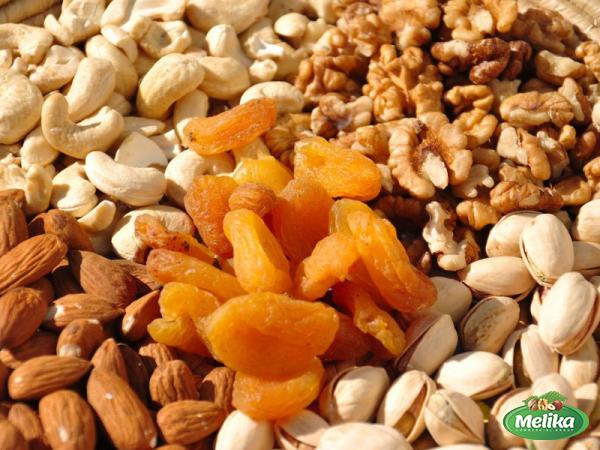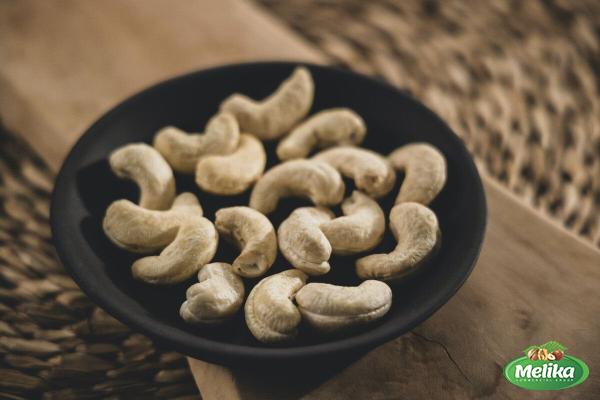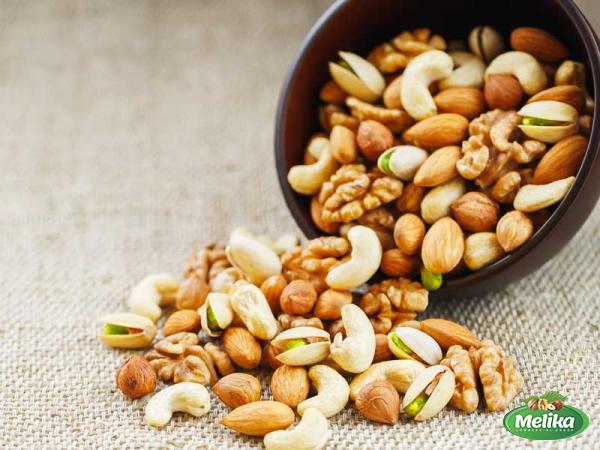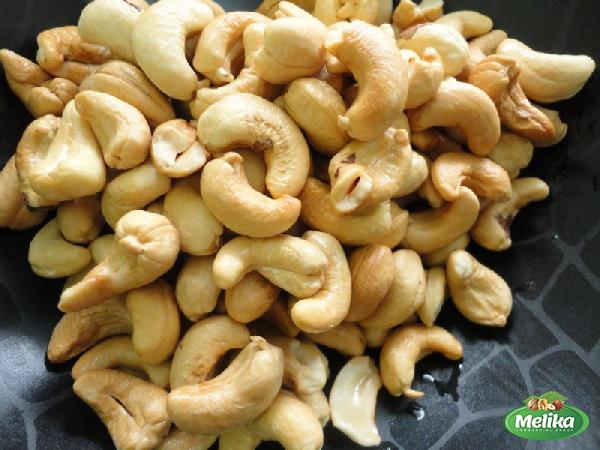The French cashew fruit, also known as “cajou” in French, is a tropical fruit native to Brazil that has gained popularity for its unique combination of flavors and health benefits. Although it is often overshadowed by its prized counterpart, the cashew nut, the cashew fruit offers its own distinct taste and nutritional value. This article aims to provide a comprehensive overview of French cashew fruit, including its origin, characteristics, culinary uses, and health benefits. Origin and Characteristics: The cashew tree (Anacardium occidentale) is native to the northeastern region of Brazil and is now cultivated in various tropical regions across the world. The fruit itself is botanically classified as an accessory fruit, with the cashew nut attached to the bottom. The vibrant cashew fruit belongs to the same family as mangoes and poison ivy, despite its striking dissimilarities. The appearance of the French cashew fruit is sometimes likened to a small bell pepper or a swollen yellow or red apple. It typically measures about 5 cm in length and has a pear-like shape. The fruit boasts a thin, waxy skin that surrounds a juicy, fibrous flesh. The flesh has a distinct sweetness balanced by a hint of tartness, making it a refreshing tropical treat. Culinary Uses and Applications: While the cashew nut is widely recognized and consumed globally, the fruit itself is less known and often underutilized. In certain regions, the cashew fruit is eaten raw as a simple, healthy snacking option, showcasing its unique blend of flavors. It can also be processed into various culinary products, including juices, jams, jellies, and even alcoholic beverages. In its raw form, the cashew fruit is known for being highly perishable. As a result, it is often consumed locally and is not commonly exported in large quantities. However, advancements in food processing techniques have enabled the availability of cashew fruit products beyond tropical regions, allowing for wider consumption and culinary experimentation. Health Benefits: Beyond its delightful flavor, the French cashew fruit possesses several health benefits that make it a valuable addition to one’s diet. Some significant health benefits include: 1. Rich in Vitamins and Minerals: The cashew fruit is a natural powerhouse of essential vitamins like vitamin C, vitamin E, and vitamin K. It also contains minerals, including calcium, potassium, phosphorus, and magnesium, which contribute to overall well-being. 2. Antioxidant Properties: The fruit is a good source of antioxidants, including polyphenols and flavonoids, which help eliminate harmful free radicals in the body, reducing the risk of chronic diseases.

nuts
 3. Boosts Immune System: Vitamin C, present in cashew fruit, aids in strengthening the immune system and improving the body’s defense against infections and diseases. 4. Supports Digestion: The high fiber content in the cashew fruit aids in digestion, preventing constipation and supporting a healthy gastrointestinal system. 5. Hydrating Properties: With its high water content, the cashew fruit can act as an effective hydrating agent, helping in maintaining optimal hydration levels. Future Prospects and Challenges: The French cashew fruit presents both opportunities and challenges in its journey towards global recognition. As consumers continue to explore and appreciate unique and exotic flavors, the demand for distinctive tropical fruits grows. This trend opens doors for the cashew fruit to become a sought-after ingredient in various culinary preparations and a popular choice for health-conscious consumers. However, several challenges hinder the widespread availability and consumption of French cashew fruit. Firstly, its delicate nature and short shelf life limit its export potential, as it requires specialized handling and distribution systems. Additionally, limited awareness and marketing efforts about the fruit’s attributes and flavors hinder its recognition among consumers. Conclusion: The French cashew fruit, with its vibrant colors, unique flavor profile, and array of health benefits, presents an exciting addition to various culinary applications. While it may not yet enjoy the same levels of popularity as its cashew nut counterpart, increased awareness, innovative processing techniques, and a growing preference for exotic fruits provide promising opportunities for the French cashew fruit’s wider acceptance and utilization. Including this tropical delight in our diets not only enhances our taste buds but also offers a distinctive blend of nutrients to support a healthy lifestyle.1. Market Potential and Demand: The market potential for French cashew fruit is steadily increasing as consumers gravitate towards unique and exotic flavors. The demand for tropical fruits has been on the rise, driven by the growing interest in healthier and more diverse food options. While the cashew nut dominates the market, there is a burgeoning opportunity for the cashew fruit to carve a niche of its own. As consumers become more adventurous with their culinary choices, the demand for French cashew fruit products, such as juices, jams, and preserves, is likely to see a surge. 2. Export Challenges and Opportunities: One of the major challenges for the French cashew fruit market is its limited export potential due to its highly perishable nature. The delicate fruit requires specialized handling and transportation to maintain its freshness and quality. However, advances in food processing technologies, such as freeze-drying and aseptic packaging, have opened up opportunities to extend the fruit’s shelf life and enable wider exportation.
3. Boosts Immune System: Vitamin C, present in cashew fruit, aids in strengthening the immune system and improving the body’s defense against infections and diseases. 4. Supports Digestion: The high fiber content in the cashew fruit aids in digestion, preventing constipation and supporting a healthy gastrointestinal system. 5. Hydrating Properties: With its high water content, the cashew fruit can act as an effective hydrating agent, helping in maintaining optimal hydration levels. Future Prospects and Challenges: The French cashew fruit presents both opportunities and challenges in its journey towards global recognition. As consumers continue to explore and appreciate unique and exotic flavors, the demand for distinctive tropical fruits grows. This trend opens doors for the cashew fruit to become a sought-after ingredient in various culinary preparations and a popular choice for health-conscious consumers. However, several challenges hinder the widespread availability and consumption of French cashew fruit. Firstly, its delicate nature and short shelf life limit its export potential, as it requires specialized handling and distribution systems. Additionally, limited awareness and marketing efforts about the fruit’s attributes and flavors hinder its recognition among consumers. Conclusion: The French cashew fruit, with its vibrant colors, unique flavor profile, and array of health benefits, presents an exciting addition to various culinary applications. While it may not yet enjoy the same levels of popularity as its cashew nut counterpart, increased awareness, innovative processing techniques, and a growing preference for exotic fruits provide promising opportunities for the French cashew fruit’s wider acceptance and utilization. Including this tropical delight in our diets not only enhances our taste buds but also offers a distinctive blend of nutrients to support a healthy lifestyle.1. Market Potential and Demand: The market potential for French cashew fruit is steadily increasing as consumers gravitate towards unique and exotic flavors. The demand for tropical fruits has been on the rise, driven by the growing interest in healthier and more diverse food options. While the cashew nut dominates the market, there is a burgeoning opportunity for the cashew fruit to carve a niche of its own. As consumers become more adventurous with their culinary choices, the demand for French cashew fruit products, such as juices, jams, and preserves, is likely to see a surge. 2. Export Challenges and Opportunities: One of the major challenges for the French cashew fruit market is its limited export potential due to its highly perishable nature. The delicate fruit requires specialized handling and transportation to maintain its freshness and quality. However, advances in food processing technologies, such as freeze-drying and aseptic packaging, have opened up opportunities to extend the fruit’s shelf life and enable wider exportation.
Specifications of nuts
 3. Innovative Packaging and Processing Techniques: To overcome the challenges associated with the perishability of French cashew fruit, innovative packaging and processing techniques have emerged. Freeze-drying, for example, preserves the fruit’s flavor and nutritional properties while extending its shelf life. Additionally, aseptic packaging ensures the fruit’s freshness and maximizes its storage capabilities, enabling it to reach global markets more efficiently. 4. Value-Added Products: Besides the traditional consumption of the cashew fruit in its raw form, the creation of value-added products has gained popularity. These products include cashew fruit juice, nectar, and even alcoholic beverages infused with the fruit’s unique flavors. Cashew fruit-based jams, jellies, and preserves have also emerged as popular choices, appealing to consumers looking for new taste experiences. 5. Culinary Innovation and Experiments: The culinary world is ripe with opportunities to incorporate French cashew fruit into various dishes and recipes. With its distinct sweet and tart profile, the fruit can be used as a key ingredient in desserts, salads, sauces, and marinades. Chefs and home cooks alike can experiment with the fruit’s flavors, providing a refreshing twist to traditional dishes and capturing the interest of food enthusiasts. 6. Health Food Stores and Specialty Markets: Health food stores and specialty markets are prime distribution channels for French cashew fruit products. These establishments cater to health-conscious consumers seeking unique and nutrient-rich offerings. By establishing partnerships and collaborations with such stores, producers of cashew fruit products can tap into a targeted consumer base, increasing visibility and sales. 7. Marketing and Promotion: To raise awareness and drive demand for French cashew fruit, effective marketing and promotion strategies are crucial. Producers can leverage social media platforms and influencers to showcase the fruit’s versatility and health benefits. Collaboration with renowned chefs and food bloggers can also help create buzz around French cashew fruit and expand its reach to a wider audience. 8. Sustainable Farming and Production Practices: Sustainable farming and production practices are becoming increasingly important in the agricultural industry. Producers of French cashew fruit can differentiate themselves by adopting environmentally friendly cultivation methods and ensuring fair labor practices.
3. Innovative Packaging and Processing Techniques: To overcome the challenges associated with the perishability of French cashew fruit, innovative packaging and processing techniques have emerged. Freeze-drying, for example, preserves the fruit’s flavor and nutritional properties while extending its shelf life. Additionally, aseptic packaging ensures the fruit’s freshness and maximizes its storage capabilities, enabling it to reach global markets more efficiently. 4. Value-Added Products: Besides the traditional consumption of the cashew fruit in its raw form, the creation of value-added products has gained popularity. These products include cashew fruit juice, nectar, and even alcoholic beverages infused with the fruit’s unique flavors. Cashew fruit-based jams, jellies, and preserves have also emerged as popular choices, appealing to consumers looking for new taste experiences. 5. Culinary Innovation and Experiments: The culinary world is ripe with opportunities to incorporate French cashew fruit into various dishes and recipes. With its distinct sweet and tart profile, the fruit can be used as a key ingredient in desserts, salads, sauces, and marinades. Chefs and home cooks alike can experiment with the fruit’s flavors, providing a refreshing twist to traditional dishes and capturing the interest of food enthusiasts. 6. Health Food Stores and Specialty Markets: Health food stores and specialty markets are prime distribution channels for French cashew fruit products. These establishments cater to health-conscious consumers seeking unique and nutrient-rich offerings. By establishing partnerships and collaborations with such stores, producers of cashew fruit products can tap into a targeted consumer base, increasing visibility and sales. 7. Marketing and Promotion: To raise awareness and drive demand for French cashew fruit, effective marketing and promotion strategies are crucial. Producers can leverage social media platforms and influencers to showcase the fruit’s versatility and health benefits. Collaboration with renowned chefs and food bloggers can also help create buzz around French cashew fruit and expand its reach to a wider audience. 8. Sustainable Farming and Production Practices: Sustainable farming and production practices are becoming increasingly important in the agricultural industry. Producers of French cashew fruit can differentiate themselves by adopting environmentally friendly cultivation methods and ensuring fair labor practices.
buy nuts
 By emphasizing their commitment to sustainability, companies can attract conscious consumers who value ethically produced products. 9. Partnerships with Local Farmers: Forming partnerships with local farmers who cultivate cashew trees can strengthen the supply chain and ensure a steady and high-quality source of French cashew fruit. Such collaborations can also contribute to the economic growth of the local communities and foster sustainable agricultural practices. 10. Research and Development: Investing in research and development is crucial for the future success of the French cashew fruit industry. Continued exploration into innovative processing techniques, product development, and flavor enhancement can help unlock new possibilities and applications for the fruit. By staying at the forefront of research, producers can remain competitive and seize emerging opportunities in the market. 11. International Trade and Collaboration: International trade and collaboration play a pivotal role in expanding the reach of French cashew fruit products. By identifying potential export markets and establishing trade agreements, producers can enter new territories and introduce the fruit to a wider consumer base. Collaboration with international partners can also facilitate knowledge exchange, allowing for the introduction of new cultivation techniques and sharing best practices. 12. Consumer Education and Awareness: Educating consumers about the French cashew fruit and its myriad benefits is an important aspect of driving demand. In-store tastings, online tutorials, and informative content can help consumers understand the distinctive qualities and nutritional value of the fruit. Building a connection between the consumer and the fruit’s origin and story can foster a deeper appreciation and loyalty towards French cashew fruit products. Conclusion: The French cashew fruit holds immense potential as a distinctive tropical fruit with unique flavors and health benefits. While its export challenges and limited awareness may pose obstacles, the growing interest in exotic flavors and the rise of health-conscious consumption present exciting opportunities. By capitalizing on innovative processing techniques, culinary experimentation, and strategic marketing, the French cashew fruit industry can position itself as a valuable player in the global market, delighting consumers and nourishing their palates with this nature’s nutty delight.
By emphasizing their commitment to sustainability, companies can attract conscious consumers who value ethically produced products. 9. Partnerships with Local Farmers: Forming partnerships with local farmers who cultivate cashew trees can strengthen the supply chain and ensure a steady and high-quality source of French cashew fruit. Such collaborations can also contribute to the economic growth of the local communities and foster sustainable agricultural practices. 10. Research and Development: Investing in research and development is crucial for the future success of the French cashew fruit industry. Continued exploration into innovative processing techniques, product development, and flavor enhancement can help unlock new possibilities and applications for the fruit. By staying at the forefront of research, producers can remain competitive and seize emerging opportunities in the market. 11. International Trade and Collaboration: International trade and collaboration play a pivotal role in expanding the reach of French cashew fruit products. By identifying potential export markets and establishing trade agreements, producers can enter new territories and introduce the fruit to a wider consumer base. Collaboration with international partners can also facilitate knowledge exchange, allowing for the introduction of new cultivation techniques and sharing best practices. 12. Consumer Education and Awareness: Educating consumers about the French cashew fruit and its myriad benefits is an important aspect of driving demand. In-store tastings, online tutorials, and informative content can help consumers understand the distinctive qualities and nutritional value of the fruit. Building a connection between the consumer and the fruit’s origin and story can foster a deeper appreciation and loyalty towards French cashew fruit products. Conclusion: The French cashew fruit holds immense potential as a distinctive tropical fruit with unique flavors and health benefits. While its export challenges and limited awareness may pose obstacles, the growing interest in exotic flavors and the rise of health-conscious consumption present exciting opportunities. By capitalizing on innovative processing techniques, culinary experimentation, and strategic marketing, the French cashew fruit industry can position itself as a valuable player in the global market, delighting consumers and nourishing their palates with this nature’s nutty delight.











Your comment submitted.